Published Jan 8, 2020
Star Trek: Picard Will be The Next Generation of Trek for Young Fans
How the lessons of Star Trek: The Next Generation are reaching a new group of fans because of Star Trek: Picard.
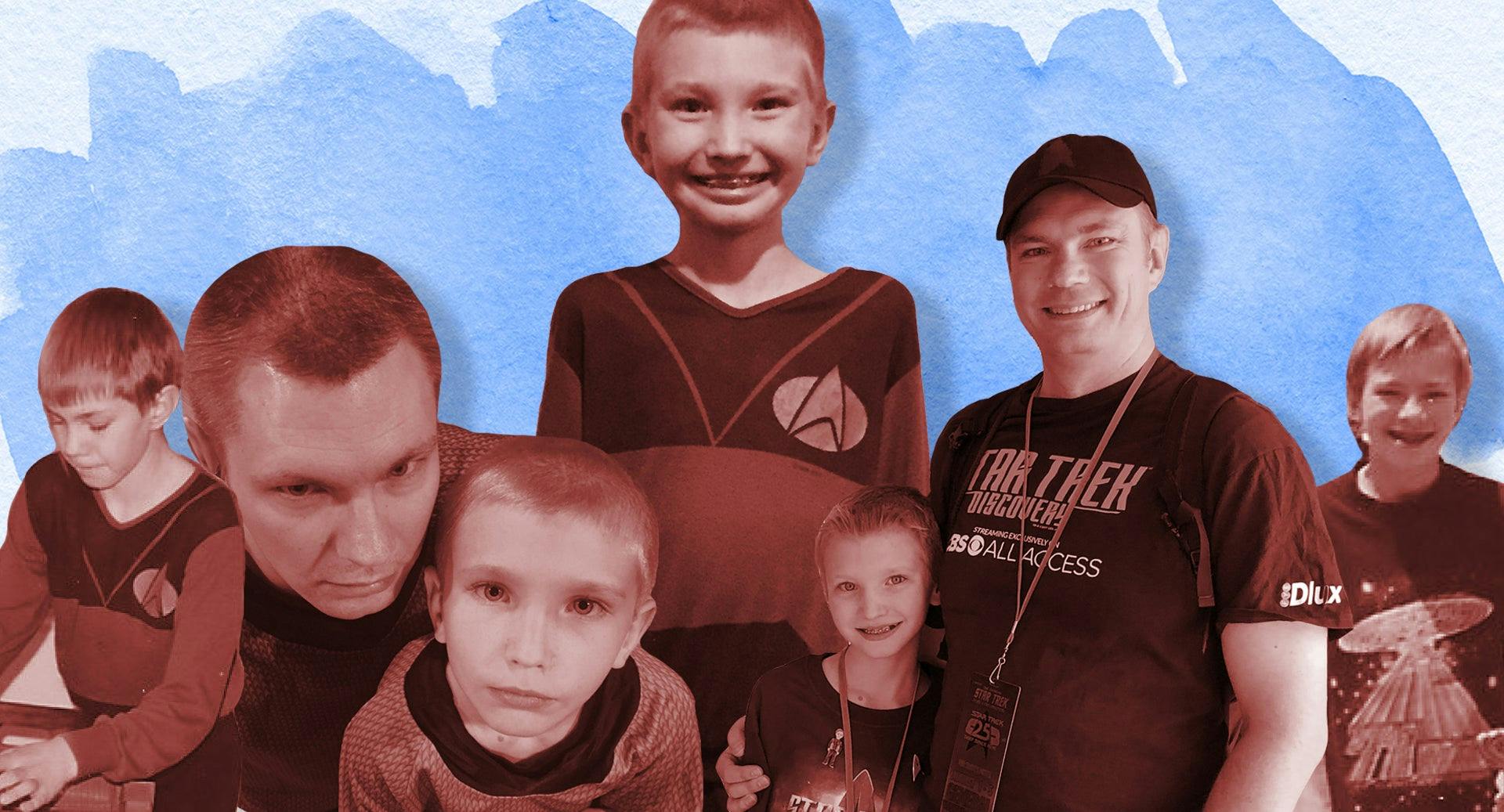
StarTrek.com
Jude Watches Star Trek: Picard - Maps and Legends
I sort of stumbled into my Star Trek fandom. A child of the ‘80s, I had mostly been a fan of that other franchise far, far away. I’d had incidental contact with Star Trek in that decade — watching “The Savage Curtain” over the 1984 holiday season and seeing The Voyage Home in theaters — but it wasn’t until a contest sponsored by Cheerios that Gene Roddenberry’s utopian future caught my attention. Little did I know, when reaching for the free Geordi LaForge sticker at the bottom of a cereal box that my life, even my moral center, would never be the same.
I was eight years old when The Next Generation premiered. Intrigued by the aforementioned cereal contest, I found where it was airing, my local UHF channel, Sunday afternoons at 5:00. I had missed the first couple of episodes but joined in with “Code of Honor.” To third-grader me, it was the most amazing thing I’d ever seen. The UHF signal didn’t produce a quality enough signal for video recording, so my parents helped me record every episode on audio cassette. I listened to them over and over again in that first season, reliving in my mind adventures such as Q offering Riker a place in the Continuum and the away team in a fierce firefight with the Echo Papa 607.
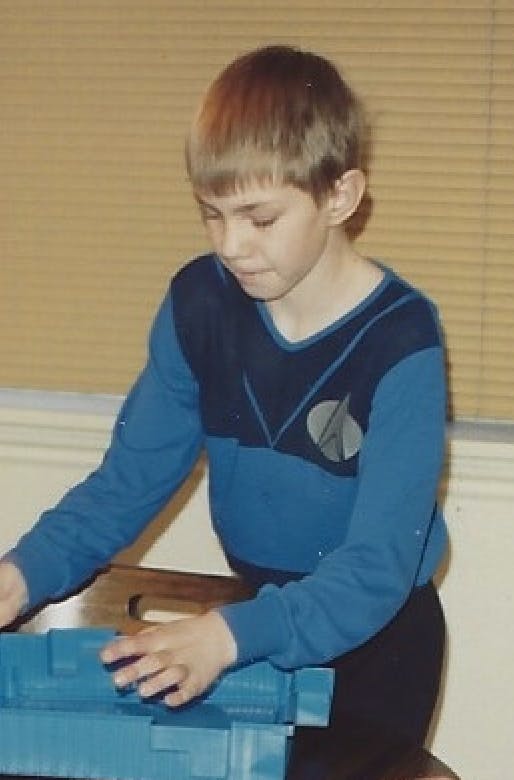
StarTrek.com
What I didn’t know at that age was that I was being taught lessons of morality. By the second season, my local TV station had shifted from its UHF signal to a stronger VHF, which allowed me to video record episodes and fully experience them again and again. And I had become a full-blown Star Trek fan. I had all the toys, subscriptions to both series of comic books, dressed as Spock for Halloween, attended the annual convention in my hometown, developed an eight-year-old’s crush on Denise Crosby, and suffered interminably through the summer of “Best of Both Worlds.” For my eleventh birthday, I received a custom-made uniform — the peak of my preadolescent fandom.
Through the evolution of my fandom, I’ve read countless think pieces about the progressive pioneering of The Original Series, and early on began to recognize the morality plays of The Next Generation. “Symbiosis” gave me a different perspective on addiction than my D.A.R.E. program at school. “The Measure of a Man” shook me as I understood the realities of slavery and inequality in America. “Sarek” opened my eyes to the devastating plight of dementia (something that I would turn back to 30 years later when my mother battled Alzheimer’s until her death). “The Outcast” introduced me to LGBTQIA struggles in 1990s culture. “The Chain of Command” remains to this day one of the most powerful teachers of the evils of torture and war I’ve ever encountered. These and numerous other episodes played a significant role in the expansion of my personal character and world view.
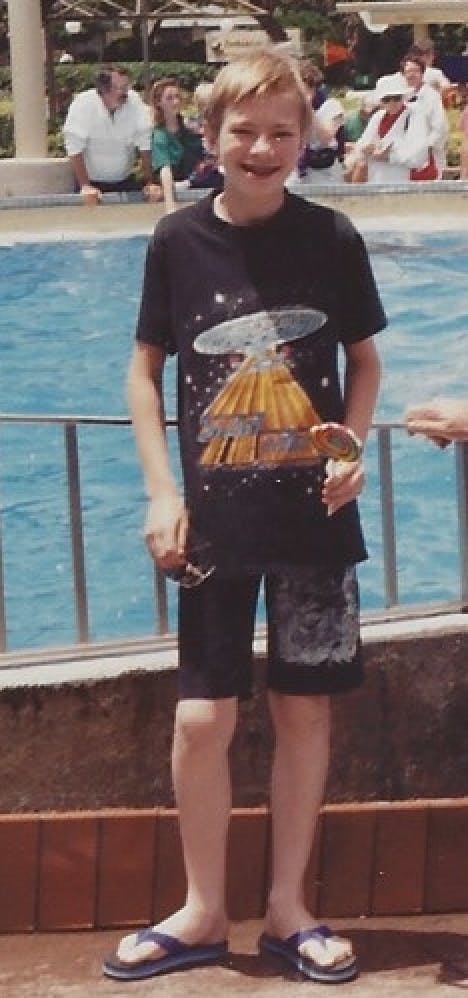
StarTrek.com
As Deep Space Nine and Voyager debuted and The Next Generation soared off to the big screen, my allegiance to Star Trek remained deep. I appreciated greatly that the life lessons and allegories continued. In fact, DS9 became (and remains) my favorite series of the franchise. However, perhaps because I was as young as I was when it brought me into Trekdom, or because it was my safe haven from the bullying I endured at school, or because of the developmental enlightenment it brought me, The Next Generation was my home and its cast my friends and heroes.
Fast forward to adulthood. In the 25 years since The Next Generation aired its final TV episode “All Good Things...,” there’s been good Star Trek and not-so-good Star Trek. As a literal lifelong fan, I’ve seen it all. I’ve liked most of it, disliked some of it, and loved all of it. And my perspective on the morality plays presented as “continuing missions” has evolved as I’ve matured. Episodes like “Relics” and its warning about ageism and “Tapestry” with its message about courage and risk mean as much to me now rewatching as the others did in my childhood. But the biggest change in my fandom has come about by my role as a father.
From the time he was born in January 2008, my son Jonas has watched various forms of Star Trek with me. For many years, the action and adventure of The Original Series, its animated counterpart, and the Kelvin Timeline were his favorites. Captain Kirk was his hero (and third grade Halloween costume) and a phaser became one of his favorite toys. Then, through parentally-guided viewing, Discovery became his favorite. With the resurgence of the franchise and online streaming providing a much better viewing experience than over-the-air TV, I saw in my son a parallel to my own childhood. Though he wasn’t quite as interested in The Next Generation because, I think, he considered it too cerebral.
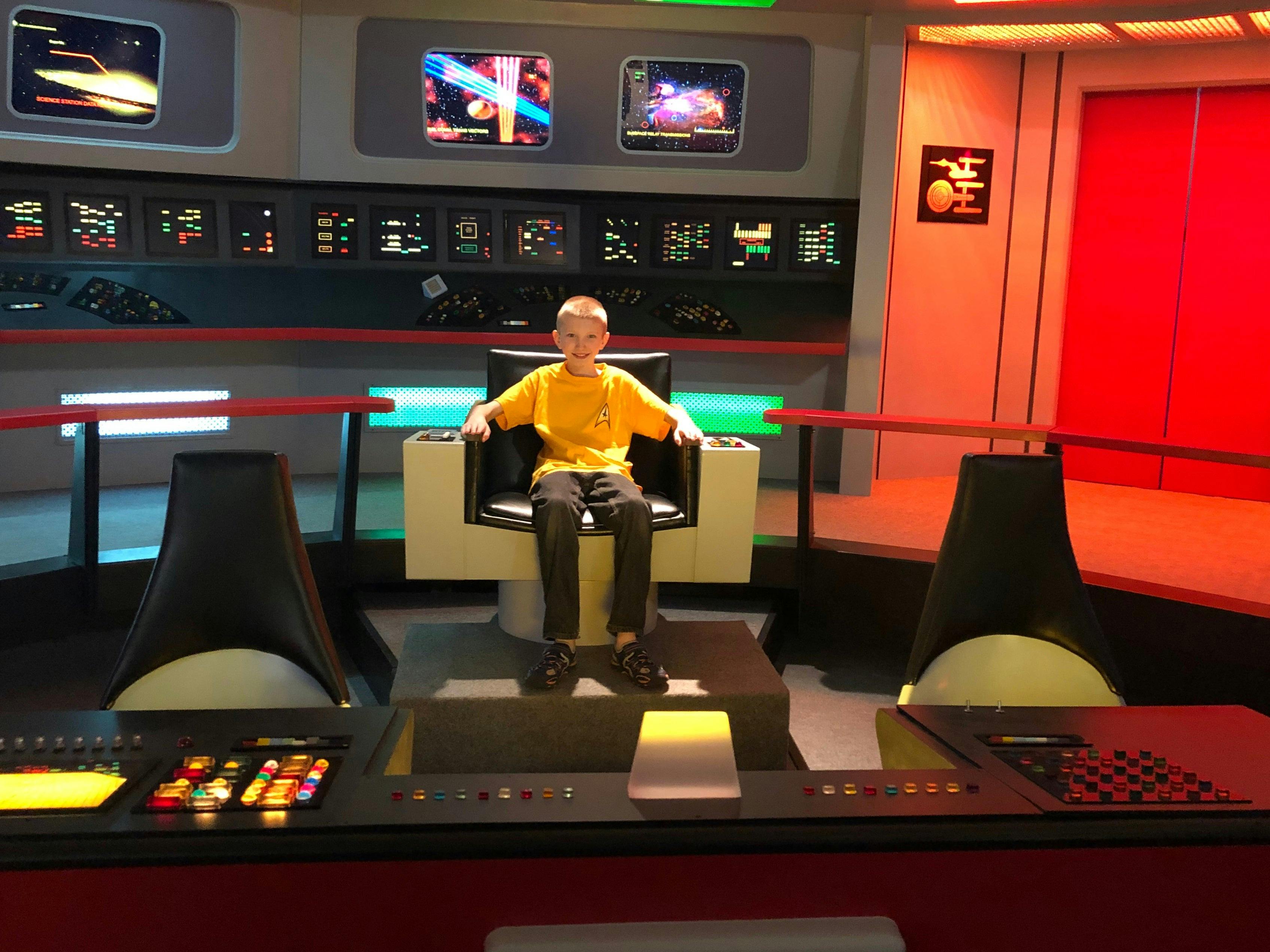
StarTrek.com
This changed in the summer of 2018, when he and I attended the Star Trek Las Vegas Convention. Through autograph collecting and photo op getting — including with his ten-year-old’s crush Mary Wiseman and childhood hero William Shatner — I saw reflected in my boy the pure joy Star Trek had brought into my life. When all other convention events were paused for a special announcement in the large theater, he and I retook our seats with eager anticipation.
Joining thousands of our fellow fans, we cheered as Alex Kurtzman took the stage. Jonas was particularly excited to see him — the architect of the corners of the Star Trek Universe he’d especially embraced. Neither of us, however, was prepared for Patrick Stewart’s appearance and the announcement that Jean-Luc Picard would be returning to our screens. The raw emotion felt in that room as we Trekkies collectively shared a reunion with our hero, our leader, our captain is something I will never forget. And neither will Jonas.
Walking out of that announcement, Jonas told me he wanted to watch The Next Generation to prepare for what we would later know as Star Trek: Picard. I told him it wasn’t as action-centric as he saw The Original Series or Discovery to be. He didn’t care. He’d felt the emotion in that room and wanted to be a part of what was to come. In the months that followed, we dove in. We began, obviously, with the episodes that best featured Captain Picard. As trailers and teasers for the new series were released, we expanded to include Data-focused episodes and installments of Voyager that were about Seven of Nine.
Initially, his favorite episodes were the more action-packed — “Best of Both Worlds,” “Yesterday’s Enterprise,” etc. But that changed very soon. His favorites became the deeply emotional and philosophical. Just as I had experienced when I was his age, he was discovering lessons of morality from the Star Trek: The Next Generation.
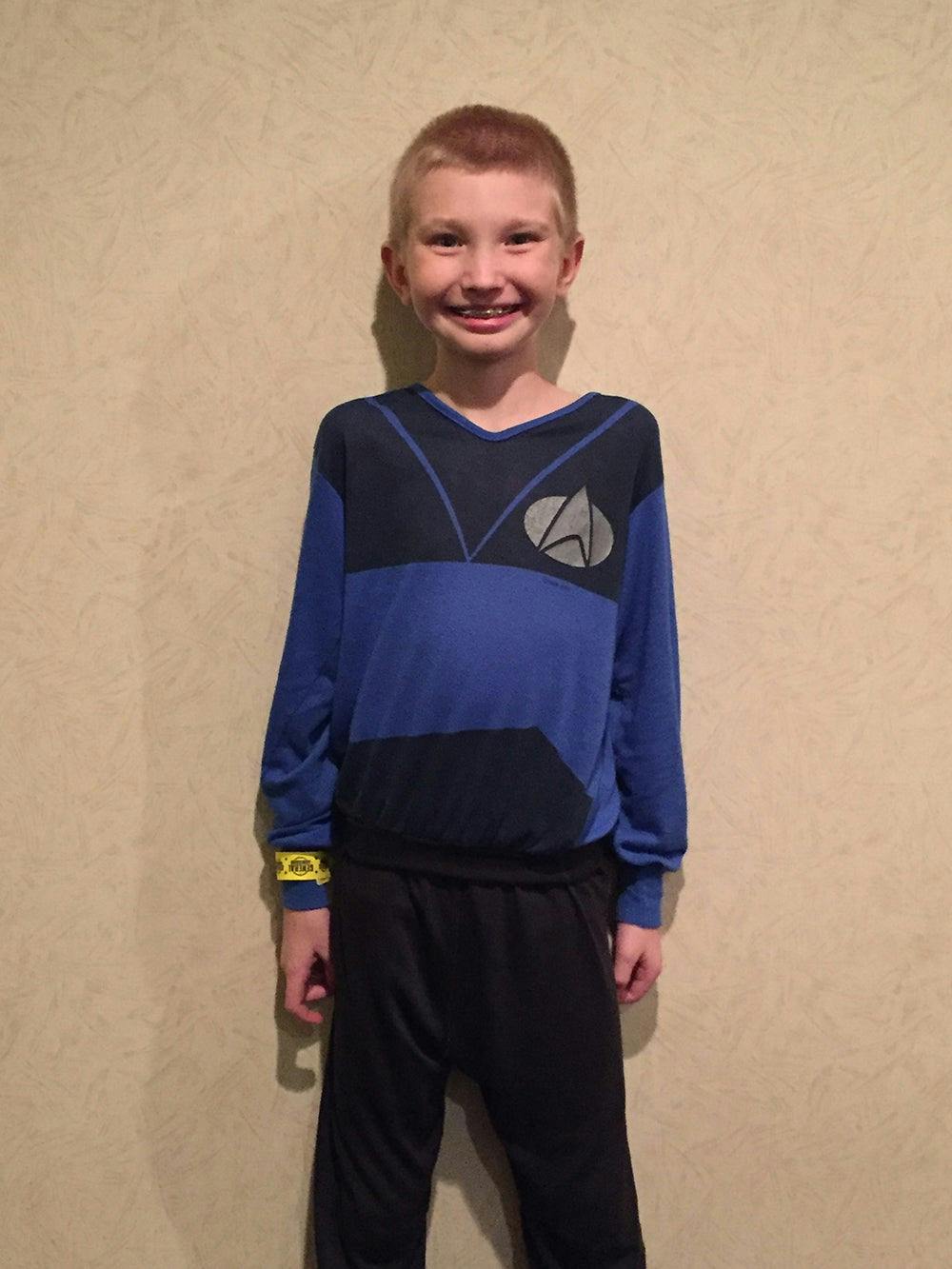
StarTrek.com
Jonas claims “The Inner Light” as his favorite episode. The concept of it is fascinating to him, but more the societal importance of family heritage and legacy was impressed upon him through that show. He discovered within himself the depth and power of empathy when he realized Robert and René Picard from “Family” were killed in a fire in Generations. Even mentioning that moment causes him to weep. And that empathy has made its way into his daily life at home and school. He is a proud defender of the oppressed. As he watched Hugh in “I, Borg,” he saw the importance of protecting and defending an individual regardless of past perceptions about race, sexuality, or identity. He declared, with great righteousness, after watching that episode, “Everyone is equal! Everyone deserves the right to be happy!”
Through Data’s and Seven’s journeys, he has learned the importance of emotional expression and emotional intelligence, something he had been hesitant about in his younger years. Jonas turns 12 two days before Picard premieres. As he is on the cusp of adolescence, he has seen an android and a former Borg thrive as the outsiders seemingly every middle schooler feels they are. He has embraced his humanity as they have theirs. In Nemesis, Jonas learned from Data the power and significance of sacrifice and loyalty.
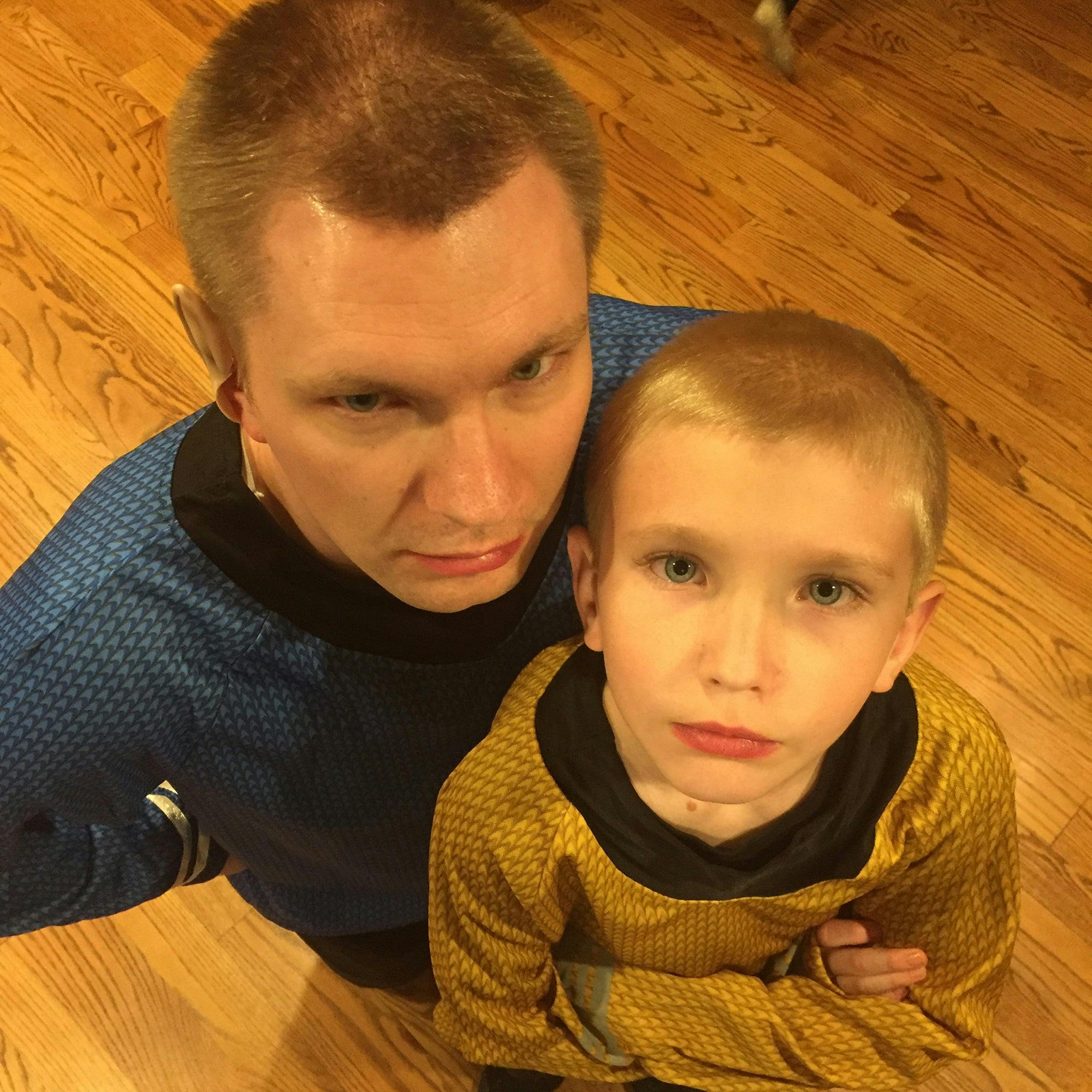
StarTrek.com
As we have watched the Picard trailers together, we have grown more and more excited. They have not only piqued our now-shared interest and love for the 24th century crew of the Enterprise, but also, more importantly, they have opened discussions between us about our 21st century society and its challenges.
“I am standing up for the Federation. For what it should still represent!” a defiant Picard says in one trailer. In discussing that line, Jonas told me, “The Federation is peace. It’s inclusivity. It’s diversity.” The Next Generation taught those ideas to me 30-plus years ago. Picard is teaching them to the next generation. And we have never needed them more than in 2020.
Jake Black (he/him) is a writer whose credits include Star Trek: Starfleet Logbook, Star Trek Magazine, and works for DC Comics, Marvel, WWE, Teenage Mutant Ninja Turtles, Supergirl, and many more. A ten-year cancer survivor, he lives in a quiet Connecticut town with his wife, son, and twin daughters. Found online @jakeboyslim
Star Trek: Picard streams on Paramount+ in the United States, in Canada on Bell Media’s CTV Sci-Fi Channel and streams on Crave, and on Amazon Prime Video in more than 200 countries and territories.

